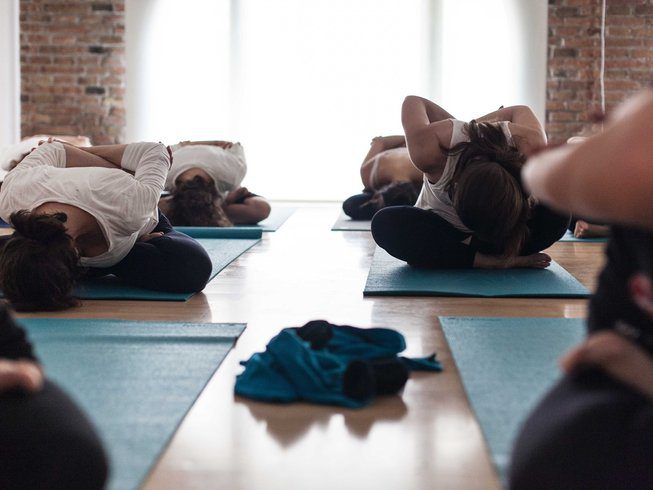
Yoga is a transformative practice that connects the mind, body, and spirit. For many, it begins as a personal journey to improve flexibility, reduce stress, or increase mindfulness. For others, this journey leads to the desire to share the benefits of yoga with others, eventually becoming a yoga teacher. If you’re contemplating a path to becoming a certified yoga instructor, selecting the right yoga teacher training (YTT) program is crucial. In this article, we’ll explore the best yoga teacher training programs, what they offer, and what to consider when choosing the ideal one for your needs.
Why Yoga Teacher Training?
Yoga teacher training isn’t just for those who want to teach. Many practitioners undergo YTT to deepen their practice, increase self-awareness, and learn more about yoga philosophy, anatomy, and the art of teaching. It’s a journey that can transform your life, whether you want to guide others in a yoga class or simply become more in tune with yourself.
Key Benefits of Yoga Teacher Training:
- Deepen Your Personal Practice: YTT helps refine your technique, providing a deeper understanding of postures, breathwork, and meditation.
- Yoga Philosophy: Learn about the roots of yoga, its philosophy, and how ancient teachings can be integrated into modern life.
- Teaching Skills: Even if you don’t plan to teach immediately, learning how to guide others through a practice with clarity and confidence is invaluable.
- Anatomy and Alignment: Understand the body’s mechanics and how to prevent injuries in both yourself and your future students.
- Community and Support: YTT fosters a sense of community. Connecting with like-minded people can be a powerful experience for personal growth.
What to Look for in a Top Yoga Teacher Training Program
Choosing the right teacher training program is essential for getting the most out of your experience. Here are some key factors to consider:
1. Accreditation
The best yoga teacher training programs are accredited by the Yoga Alliance, the world’s largest organization representing the yoga community. Accreditation ensures that the program meets certain standards and that your certification will be recognized internationally. Programs accredited by Yoga Alliance offer the 200-hour, 300-hour, or 500-hour certifications, depending on your level of expertise.
2. Style of Yoga
Yoga encompasses a variety of styles, such as Hatha, Vinyasa, Ashtanga, Iyengar, Kundalini, and others. Consider the style that resonates with you. Some programs focus on one specific style, while others offer a broader, more eclectic approach. The best program will align with your personal practice or the style you plan to teach.
3. Teacher Expertise and Experience
The quality of the instructors is paramount. The best teacher trainers have years of experience both in practicing yoga and teaching it. They should have deep knowledge of yoga philosophy, anatomy, and alignment, and they should be able to communicate effectively with students of various backgrounds. Consider reading reviews, researching their backgrounds, and ensuring that they have the credentials to teach the program.
4. Comprehensive Curriculum
A well-rounded curriculum covers both the physical and philosophical aspects of yoga. A solid yoga teacher training program should include:
- Asana Practice: Detailed instruction on postures, alignment, modifications, and variations.
- Pranayama (Breathing Techniques): Techniques to control the breath and enhance the flow of energy.
- Meditation and Mindfulness: Practices to cultivate focus, concentration, and mental clarity.
- Anatomy: Understanding the body and how to safely guide students.
- Teaching Methodology: How to structure a class, offer adjustments, and create a safe environment for students.
- Yoga Philosophy: Learning about the ancient texts like the Bhagavad Gita and Yoga Sutras.
- Business Skills: If you plan to teach professionally, having a module on how to build a career in yoga can be highly valuable.
5. Location and Setting
Whether you’re looking for an immersive experience in a tranquil retreat or prefer a local program in your city, the location can impact your experience. Many people choose a destination training, often held in peaceful settings like Bali, Costa Rica, or India. These immersive environments provide a beautiful and quiet backdrop for deepening your practice and learning. Alternatively, a program close to home might suit those with family or work commitments.
6. Duration of the Program
Most foundational yoga teacher training programs are 200 hours in length, typically spread over several weeks or months. Some programs may also offer accelerated formats or flexible schedules for people who can’t commit to an intensive program. Choose a program that fits your timeline and allows you to fully absorb the material.
7. Cost and Payment Plans
Yoga teacher training can be a significant financial investment. It’s important to balance cost with quality. Many programs offer scholarships, payment plans, or early-bird discounts, so explore these options. Keep in mind that the value you receive from a high-quality training will often outweigh the initial cost.
Top Yoga Teacher Training Programs
Now that we’ve covered the essential aspects of what to look for, here are some of the most well-regarded yoga teacher training programs in the world:
1. YogaWorks
Known for its holistic approach, YogaWorks offers 200-hour and 300-hour teacher training programs that emphasize strong alignment, intelligent sequencing, and yoga philosophy. They have locations around the world and offer online courses for those who can’t travel.
2. Kripalu Center for Yoga & Health (USA)
Kripalu offers one of the most renowned yoga teacher training programs in the United States. It combines mindfulness, self-awareness, and the physical practice of yoga in a holistic approach. Their immersive 200-hour and 300-hour programs are widely respected for producing skilled, compassionate teachers.
3. Ashtanga Yoga Research Institute (India)
Founded by the legendary Sri K. Pattabhi Jois, the Ashtanga Yoga Research Institute in Mysore, India, offers an authentic and intensive Ashtanga yoga teacher training. This is ideal for those who wish to delve into the depths of Ashtanga and explore the roots of the practice.
4. Sivananda Yoga Vedanta Dhanwantari Ashram (India)
With its origins rooted in classical yoga teachings, the Sivananda organization offers a comprehensive 200-hour yoga teacher training program. Located in the serene environment of their ashrams, students learn traditional asana practice, pranayama, meditation, and the philosophical teachings of Vedanta.
5. Jivamukti Yoga School (USA and Worldwide)
Jivamukti is a contemporary approach to yoga that integrates physical postures with spiritual teachings. Their teacher training programs are intense and transformative, offering in-depth training in yoga philosophy, asana, chanting, and meditation. Jivamukti programs are available in New York, London, and other locations.
6. Tulum Yoga Teacher Training (Mexico)
For those seeking an immersive experience in a tropical paradise, Tulum, Mexico, is home to some of the best yoga teacher training programs, including those offered by schools like Yandara and Tulum Yoga School. These programs often include beachfront settings, immersion in nature, and the perfect opportunity to relax while learning.
Conclusion
Becoming a yoga teacher is not just about learning postures; it’s about embodying the spirit of yoga and sharing its transformative benefits with others. By selecting a yoga teacher training program that resonates with your personal goals, philosophy, and practice, you’ll not only gain the knowledge and skills necessary to become a skilled teacher but also embark on a personal journey of growth. Whether you prefer an in-depth, philosophical approach or a hands-on, practical focus, there’s a program that’s right for you.







